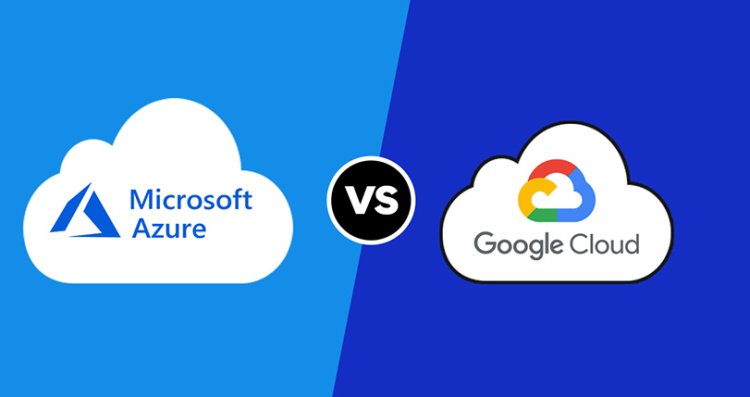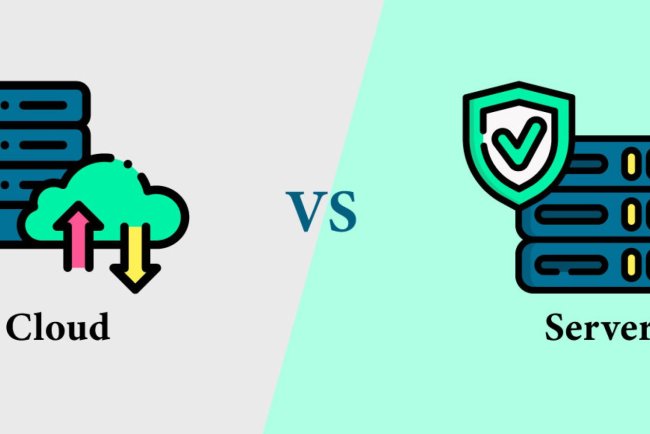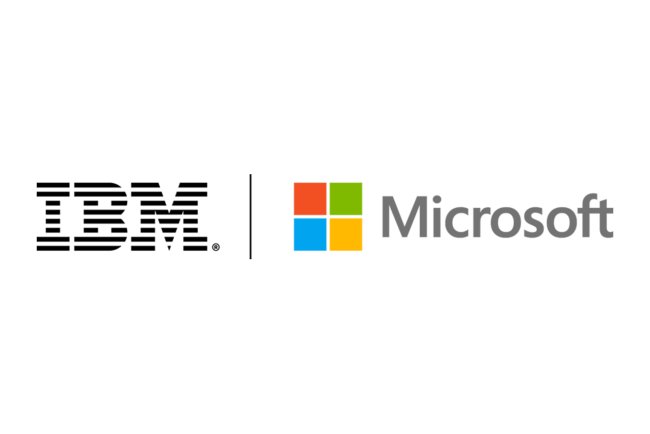Why do you think Microsoft's Azure cloud unit is growing faster than Google Cloud despite Microsoft's smaller market share in the space? Why does Google think Microsoft's licensing terms around Azure are limiting customer choice in the cloud computing space?
Explore the key reasons Microsoft Azure is growing faster than Google Cloud in 2025 — from enterprise trust to hybrid cloud dominance and AI integration with everyday business tools. Microsoft Azure is growing faster than Google Cloud in 2025. Learn why Azure’s enterprise integration, hybrid capabilities, and OpenAI partnership are giving it the edge.

Why Is Microsoft Azure Growing Faster Than Google Cloud Despite a Smaller Market Share?
In the competitive world of cloud computing, all eyes are on the "Big Three": Amazon Web Services (AWS), Microsoft Azure, and Google Cloud Platform (GCP). While AWS remains the dominant market leader, the race for second place is heating up — and Microsoft Azure is growing faster than Google Cloud, despite historically holding a smaller share of the market.
So why is Azure growing more rapidly? The answer lies in strategic positioning, enterprise trust, hybrid flexibility, and ecosystem integration.
Let’s explore the key reasons why Microsoft Azure is outpacing Google Cloud in growth.
1. Deep Enterprise Integration: Microsoft Owns the Business Software Stack
Microsoft Azure’s biggest strength lies in its native integration with Microsoft’s massive ecosystem, which includes:
-
Microsoft 365 (Word, Excel, Teams, Outlook)
-
Windows Server & Active Directory
-
Dynamics 365 for CRM and ERP
-
Visual Studio and .NET platform
-
Microsoft Teams and SharePoint
Most enterprises already use these tools daily. By adopting Azure, organizations can seamlessly extend their existing Microsoft infrastructure into the cloud. This reduces friction, lowers switching costs, and accelerates deployment timelines — making Azure a natural first choice.
Google Cloud, while strong in innovation and analytics, lacks the same deep-rooted presence in traditional enterprise IT environments. Most organizations have to adopt Google Cloud as a separate layer, often requiring integration work or re-architecture.
SEO Keywords: enterprise cloud adoption, Microsoft Azure for business, Azure vs Google Cloud, Microsoft 365 integration with Azure
2. Microsoft’s Hybrid Cloud Strategy Matches Real Enterprise Needs
While cloud-native solutions are ideal in theory, many organizations still rely heavily on legacy systems and on-premises infrastructure. This is where Microsoft Azure’s hybrid cloud capabilities shine.
With products like Azure Stack, Azure Arc, and Azure Virtual Desktop, Microsoft empowers businesses to:
-
Run applications across both public and private cloud environments
-
Manage on-prem and cloud resources from a single interface
-
Migrate gradually without overhauling their entire IT architecture
Google Cloud entered the hybrid space later with tools like Anthos, which are powerful but still relatively new to enterprises. Azure’s early and focused investment in hybrid infrastructure makes it a safer and more familiar option for IT decision-makers.
SEO Keywords: hybrid cloud strategy, Azure hybrid cloud, Azure Stack vs Anthos, cloud migration tools, Microsoft enterprise solutions
3. Microsoft’s Established Sales Channels and Partner Ecosystem
Microsoft has spent decades building trust with enterprise customers. Its global partner network, solution providers, and consulting relationships span every industry and region.
-
Microsoft has strong channel partnerships with global system integrators (like Accenture, TCS, Infosys)
-
Enterprise contracts often include Azure as part of bundled licensing deals
-
Volume discounts and Microsoft Enterprise Agreements reduce cloud transition costs
This long-standing relationship gives Azure a distribution advantage over Google Cloud, which is still expanding its salesforce and partner ecosystem to catch up.
SEO Keywords: Azure partner network, Microsoft cloud sales strategy, Azure enterprise contracts, Azure consulting partners, Google Cloud vs Azure salesforce
4. AI and Productivity Integration: Azure + OpenAI = Enterprise Appeal
Microsoft has strategically partnered with OpenAI, bringing cutting-edge tools like ChatGPT and Copilot directly into its software suite. These AI innovations are now embedded into:
-
Microsoft Word, Excel, and PowerPoint (via Copilot)
-
GitHub Copilot for developers
-
Azure OpenAI Service for custom enterprise models
This allows Microsoft to sell AI not as an add-on, but as a native enhancement to everyday work tools. Google Cloud, while offering robust AI via Vertex AI and its deep ML/TPU stack, still lacks the productivity-level integrations that Microsoft has achieved.
For enterprise buyers, especially non-tech decision-makers, Microsoft’s AI feels more useful and accessible than Google Cloud’s more technical offerings.
SEO Keywords: Azure OpenAI integration, Microsoft Copilot, Google Vertex AI vs Azure AI, enterprise AI tools, AI in Microsoft 365
5. Security, Compliance, and Industry Trust
Microsoft has decades of experience dealing with secure, regulated industries like:
-
Financial services
-
Government agencies
-
Healthcare providers
-
Defense and education
Azure is certified in dozens of global and regional compliance standards, including FedRAMP, HIPAA, SOC 2, ISO 27001, and GDPR. Their platforms also offer granular identity management, data encryption, and network segmentation, aligning with strict corporate governance.
Google Cloud has made significant strides in compliance but is still working to earn the same level of trust among risk-averse clients, especially in public sector and regulated environments.
SEO Keywords: Azure security certifications, Microsoft Azure compliance, cloud for government, Google Cloud security vs Azure, data privacy in Azure
6. Market Perception and Brand Familiarity
Beyond technical features, Microsoft Azure benefits from brand familiarity. In many organizations, Microsoft is seen as a safe, stable, and enterprise-ready choice. CIOs and IT managers are already familiar with Microsoft support, licensing, and billing systems.
On the other hand, Google is still widely viewed as a consumer-focused brand. While its innovation in AI, big data, and open-source is well-respected, its reputation in enterprise infrastructure is still maturing.
SEO Keywords: Microsoft enterprise trust, Google Cloud perception, Azure vs Google brand value, enterprise cloud preference, Azure business reputation
Conclusion: Azure’s Growth Is No Accident — It’s Strategy in Action
Microsoft Azure’s faster growth compared to Google Cloud is not just a result of timing — it’s the outcome of a strategic focus on integration, enterprise trust, and hybrid flexibility.
While Google Cloud excels in open-source technologies, data analytics, and developer-first tools, Azure continues to win by meeting enterprise clients where they already are — both in tools and in mindset.
In 2025 and beyond, businesses choosing a cloud provider will increasingly prioritize:
-
Integration with existing tools
-
Strong AI features that enhance workflows
-
Trustworthy compliance and hybrid capabilities
-
Support and partner ecosystems for deployment
And Microsoft Azure checks all these boxes more comprehensively than Google Cloud at this stage.
Need Help Choosing the Right Cloud Strategy?
Whether you're a startup or a large enterprise looking to scale, security and clarity in cloud adoption are crucial. Don't let tech complexity slow your growth.
Explore hybrid solutions, cloud consulting, and landing page services designed to help you scale smart — without vendor lock-in or technical roadblocks.
Visit: www.gomsu.in
-
Tailored cloud strategies
-
Business-focused landing pages
-
Consulting support to modernize your IT journey
Was this guide helpful?
Like this blog
Share it with a fellow cloud enthusiast
Comment below if you have questions or thoughts about Azure vs Google Cloud
What's Your Reaction?






















